Responding To The Call
A unified national effort to protect the health of Qatar’s population while also developing solutions to help the country fight back against COVID-19 was now fully in motion – and Qatar Foundation was at the vanguard.
With science being instrumental in combating the pandemic, research, development, and innovation entities within the Qatar Foundation (QF) ecosystem swiftly lent their support, knowledge, and expertise to the task of bolstering the resilience of Qatar and its people.
One of QF’s early contributions was to provide equipment to Hamad Medical Corporation to accelerate the process of conducting analysis, while research teams within QF got to work in crucial areas such as how tests to help measure and identify the extent of the coronavirus could be constructed, and potential treatment mechanisms. “We’ve been using the expertise that we have to develop ways of counteracting this pandemic in every way possible,” said Dr. Richard O’Kennedy, QF’s Vice President of Research, Development and Innovation.
A unified national effort to protect the health of Qatar’s population while also developing solutions to help the country fight back against COVID-19 was now fully in motion – and Qatar Foundation was at the vanguard.
With science being instrumental in combating the pandemic, research, development, and innovation entities within the Qatar Foundation (QF) ecosystem swiftly lent their support, knowledge, and expertise to the task of bolstering the resilience of Qatar and its people.
One of QF’s early contributions was to provide equipment to Hamad Medical Corporation to accelerate the process of conducting analysis, while research teams within QF got to work in crucial areas such as how tests to help measure and identify the extent of the coronavirus could be constructed, and potential treatment mechanisms. “We’ve been using the expertise that we have to develop ways of counteracting this pandemic in every way possible,” said Dr. Richard O’Kennedy, QF’s Vice President of Research, Development and Innovation.
In science and healthcare, and through its capacity to foster dialogue and inspire innovation, QF made an immediate, multi-pronged contribution to Qatar’s fightback against COVID-19
We’ve been using the expertise that we have to develop ways of counteracting this pandemic in every way possible
QF’s RDI environment encompasses:
- Qatar Science & Technology Park
- Qatar Biobank
- Qatar Genome Programme
- Industry Development and Knowledge Transfer Office
- 3 national research institutes
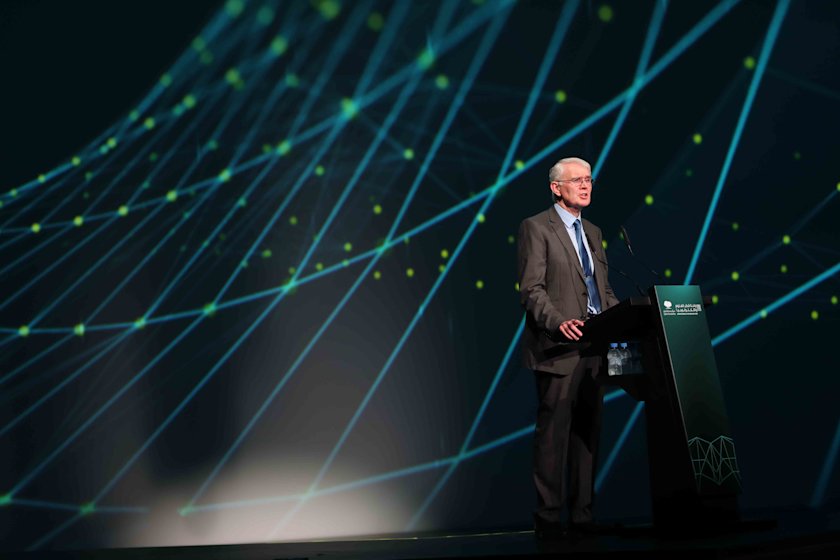
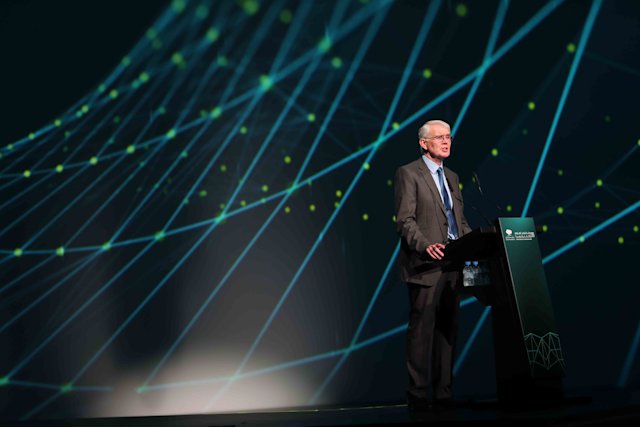
Local solutions, global benefit
QF’s capacity for agility and innovation when faced with challenges was exhibited by its member Sidra Medicine, which developed a new COVID-19 testing method aimed at helping to tackle a global shortage of conventional test kits – and the consequent risk of delays and false-negative results.
Using its robotics equipment and experience in single-cell ribonucleic acid research, the method met global clinical standards while requiring less reagents – substances used in chemical analysis – and time. And, through an Open Access license, Sidra Medicine shared this breakthrough for other countries to use.
“Our in-house extraction approach is an example of the resilience that Qatar has built by investing in sustainable biomedical research,” said Dr. Khalid Fakhro, Acting Chief Research Officer at Sidra Medicine.
“By developing such a test in-house, it is a validation not only of our technical expertise in Qatar, but also reflects our sense of responsibility as a research community to invent solutions that address global healthcare challenges in such critical times.”
QF’s capacity for agility and innovation when faced with challenges was exhibited by its member Sidra Medicine, which developed a new COVID-19 testing method aimed at helping to tackle a global shortage of conventional test kits – and the consequent risk of delays and false-negative results.
Using its robotics equipment and experience in single-cell ribonucleic acid research, the method met global clinical standards while requiring less reagents – substances used in chemical analysis – and time. And, through an Open Access license, Sidra Medicine shared this breakthrough for other countries to use.
“Our in-house extraction approach is an example of the resilience that Qatar has built by investing in sustainable biomedical research,” said Dr. Khalid Fakhro, Acting Chief Research Officer at Sidra Medicine.
“By developing such a test in-house, it is a validation not only of our technical expertise in Qatar, but also reflects our sense of responsibility as a research community to invent solutions that address global healthcare challenges in such critical times.”
Our in-house extraction approach is an example of the resilience that Qatar has built by investing in sustainable biomedical research
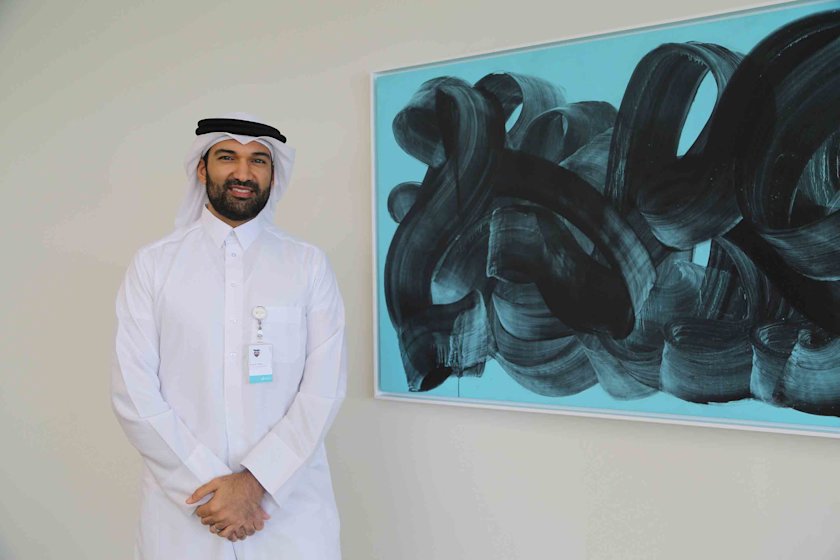
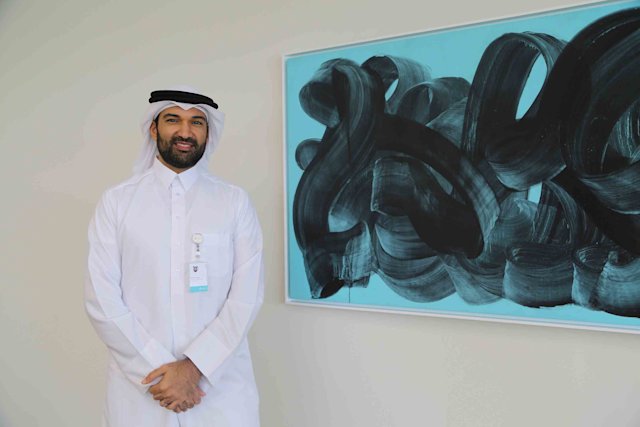
Keeping people safe, keeping learning flowing
As well as ensuring the continuity of learning via virtual platforms, QF’s partner universities played a central role in helping Qatar adapt to changing times.
Faculty from Weill Cornell Medicine-Qatar joined the Ministry of Public Health (MoPH), Hamad Medical Corporation, Qatar Metabolic Institute, and the Primary Health Care Corporation in helping to launch an outreach program – one of the first in the country – aimed at keeping people with diabetes safe amid the pandemic.
And the medical university also joined forces with MoPH to establish a new elective course allowing students to learn about the management of public health emergencies.
“Our students are highly motivated to help protect public health,” said Dr. Ravinder Mamtani, WCM-Q’s professor of healthcare policy and research, “so we wanted to provide an opportunity for them to contribute to the measures to contain the virus, while also making the best of a difficult situation by providing them with valuable learning experience during the outbreak.
As well as ensuring the continuity of learning via virtual platforms, QF’s partner universities played a central role in helping Qatar adapt to changing times.
Faculty from Weill Cornell Medicine-Qatar joined the Ministry of Public Health (MoPH), Hamad Medical Corporation, Qatar Metabolic Institute, and the Primary Health Care Corporation in helping to launch an outreach program – one of the first in the country – aimed at keeping people with diabetes safe amid the pandemic.
And the medical university also joined forces with MoPH to establish a new elective course allowing students to learn about the management of public health emergencies.
“Our students are highly motivated to help protect public health,” said Dr. Ravinder Mamtani, WCM-Q’s professor of healthcare policy and research, “so we wanted to provide an opportunity for them to contribute to the measures to contain the virus, while also making the best of a difficult situation by providing them with valuable learning experience during the outbreak.
Our students are highly motivated to help protect public health
In the 2020-21 academic year, Weill Cornell Medicine-Qatar has:
- 322 students
- 77 faculty
- 25 active research laboratories
Rising to the challenge
Texas A&M University at Qatar (TAMUQ) launched its COVID-19 Response Program to fund “short-term, high-impact” projects to support Qatar’s efforts to control the virus. Projects by faculty and researchers awarded in the first wave of funding focused on areas such 3D printing of critical medical equipment, improving testing through code design and modeling, and strategies for tailored COVID-19 prevention and linguistic diversity in public health information.
“The way our faculty have risen to the occasion to serve Qatar by lending their expertise in new and creative ways – while continuing to teach classes and support our students online – makes me proud to be part of this community,” said Dr. César Octavio Malavé, Dean of TAMUQ.
And Virginia Commonwealth University School of the Arts in Qatar offered free online art and design classes – “virtual studios” – to give people an outlet for creativity and connectivity, and help maintain their emotional wellbeing during lockdown. One course, Art In Support Of Our Heroes, was designed specifically for Qatar’s frontline medical workers.
Texas A&M University at Qatar (TAMUQ) launched its COVID-19 Response Program to fund “short-term, high-impact” projects to support Qatar’s efforts to control the virus. Projects by faculty and researchers awarded in the first wave of funding focused on areas such 3D printing of critical medical equipment, improving testing through code design and modeling, and strategies for tailored COVID-19 prevention and linguistic diversity in public health information.
“The way our faculty have risen to the occasion to serve Qatar by lending their expertise in new and creative ways – while continuing to teach classes and support our students online – makes me proud to be part of this community,” said Dr. César Octavio Malavé, Dean of TAMUQ.
And Virginia Commonwealth University School of the Arts in Qatar offered free online art and design classes – “virtual studios” – to give people an outlet for creativity and connectivity, and help maintain their emotional wellbeing during lockdown. One course, Art In Support Of Our Heroes, was designed specifically for Qatar’s frontline medical workers.
The way our faculty have risen to the occasion to serve Qatar by lending their expertise in new and creative ways…makes me proud to be part of this community
117 Students of 23 nationalities graduated from Texas A&M University at Qatar in 2020
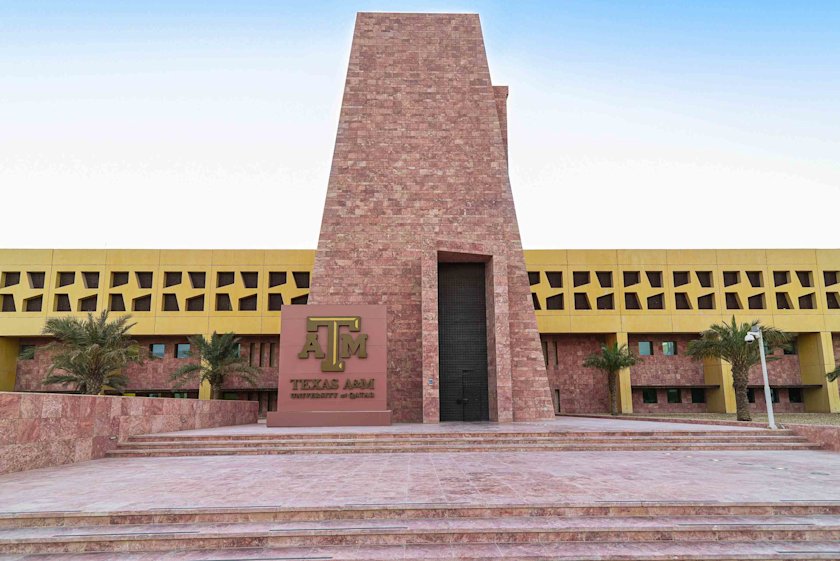
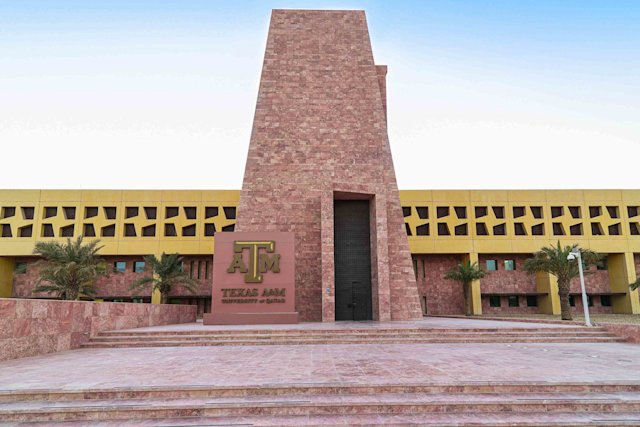
The rewards of risk-taking
A QF alumnus’ innovative mindset and willingness to take a risk led to him contributing to Qatar’s fight against COVID-19 in April – as he adapted his business from making perfume to developing hand sanitizers and antiseptics.
Mohammed Al-Matwi, founder and CEO of The Perfume Factory and a graduate of QF partner university Carnegie Mellon University in Qatar, and his team produced an entire range of personal disinfectants in less than a month, which quickly went on sale across Qatar.
“Almost overnight, I had to adapt to an entirely new market, clientele, and pace of production,” said Al-Matwi. “But we were proud that, along with other safety measures, our products would keep people safe and healthy.”
A QF alumnus’ innovative mindset and willingness to take a risk led to him contributing to Qatar’s fight against COVID-19 in April – as he adapted his business from making perfume to developing hand sanitizers and antiseptics.
Mohammed Al-Matwi, founder and CEO of The Perfume Factory and a graduate of QF partner university Carnegie Mellon University in Qatar, and his team produced an entire range of personal disinfectants in less than a month, which quickly went on sale across Qatar.
“Almost overnight, I had to adapt to an entirely new market, clientele, and pace of production,” said Al-Matwi. “But we were proud that, along with other safety measures, our products would keep people safe and healthy.”
We were proud that, along with other safety measures, our products would keep people safe and healthy
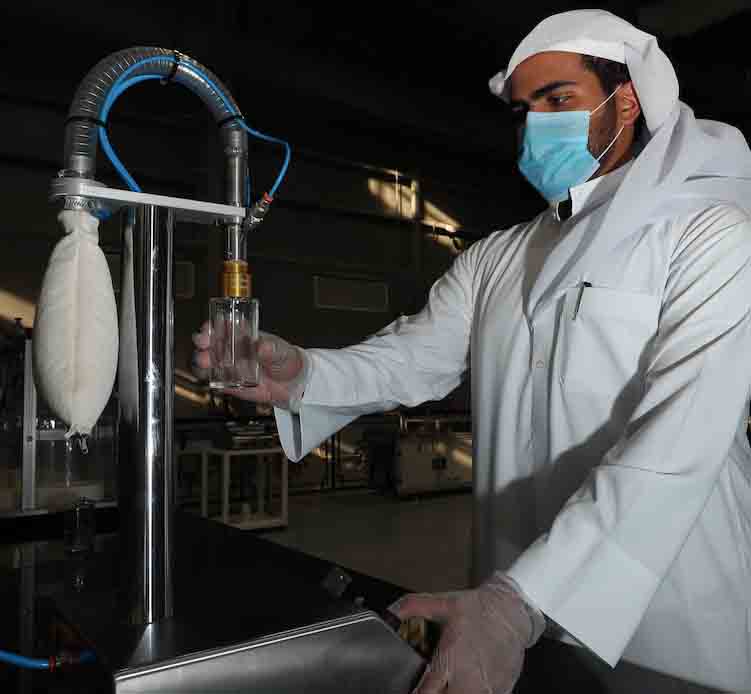
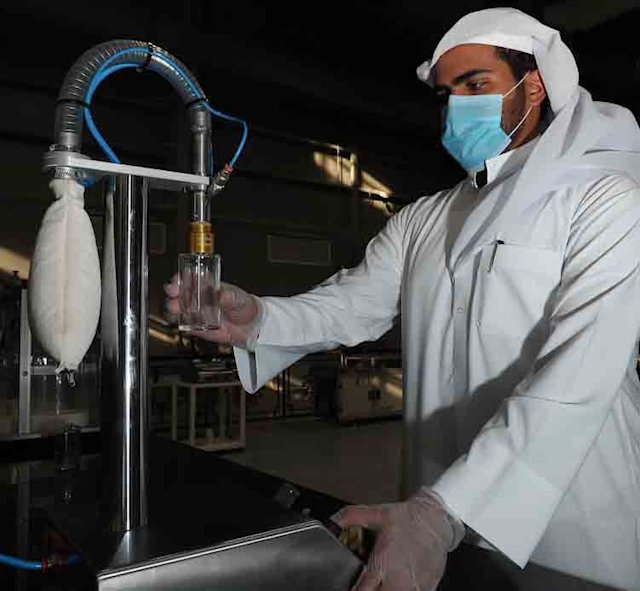
From student project to national learning tool
And, in 2020, what began as a student project at a QF partner university became a way of helping millions of schoolchildren in Pakistan to learn while watching TV.
As Pakistan’s prime minister Imran Khan launched a new channel called Teleschool to support students affected by pandemic-enforced school closures, the country’s government sought the help of Orenda, an educational organization founded in 2015 by Haroon Yasin when he was a senior at Georgetown University in Qatar.
Yasin and fellow QF alumnus Osaama Shehzad, a graduate of Carnegie Mellon University in Qatar, developed a cartoon-based digital app called Taleemabad – Urdu for ‘Education City’ – to provide a fun learning opportunity for Pakistani students, with its content reaching a daily audience of 50 million on Teleschool.
And, in 2020, what began as a student project at a QF partner university became a way of helping millions of schoolchildren in Pakistan to learn while watching TV.
As Pakistan’s prime minister Imran Khan launched a new channel called Teleschool to support students affected by pandemic-enforced school closures, the country’s government sought the help of Orenda, an educational organization founded in 2015 by Haroon Yasin when he was a senior at Georgetown University in Qatar.
Yasin and fellow QF alumnus Osaama Shehzad, a graduate of Carnegie Mellon University in Qatar, developed a cartoon-based digital app called Taleemabad – Urdu for ‘Education City’ – to provide a fun learning opportunity for Pakistani students, with its content reaching a daily audience of 50 million on Teleschool.
50m People in Pakistan accessed Taleemabad’s content each day in 2020
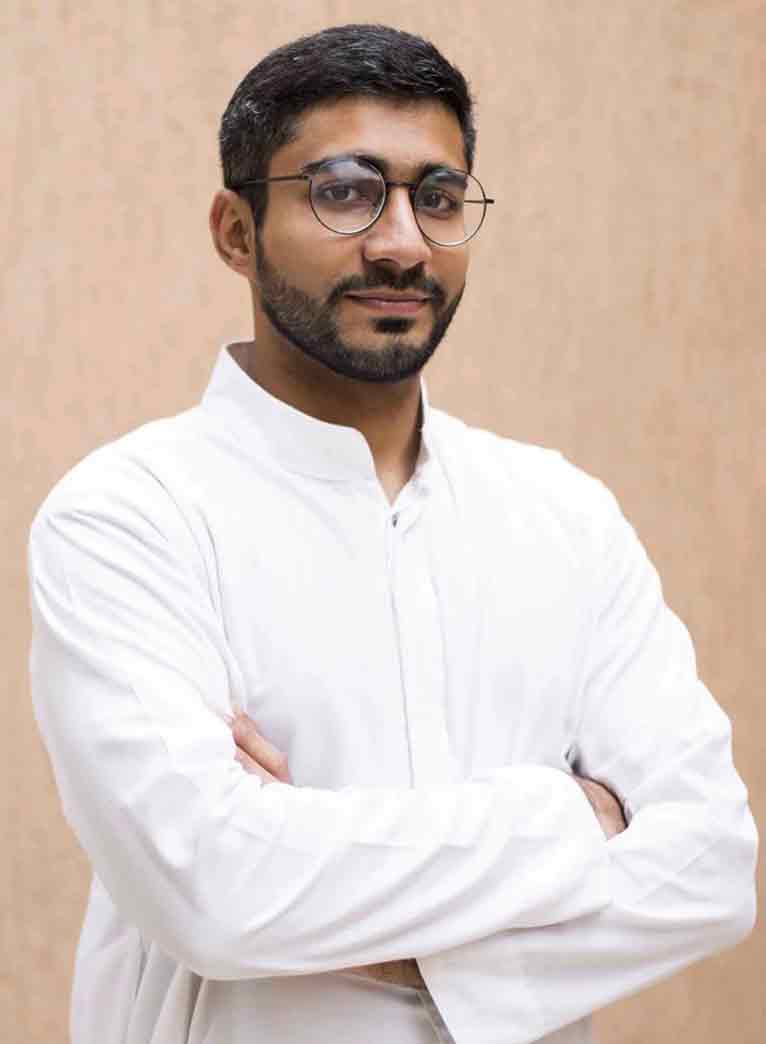
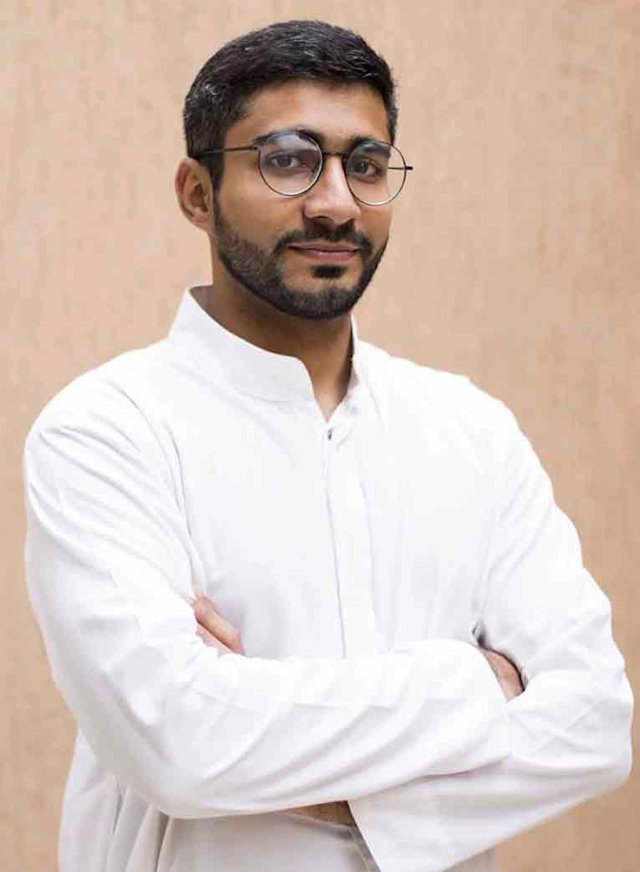
A call for unity
QF’s belief in the power of dialogue and debate to spread knowledge, broaden minds, and open up new perspectives was reinforced in the face of the pandemic, as – for the first time – its Education City Speaker Series was taken online in April, welcoming a new global audience and bringing together health experts from around the world.
Titled Flattening The Curve: Global Responses to COVID-19, the discussion saw Dr. David Nabarro, the World Health Organization’s Special Envoy on COVID-19, make an impassioned plea for global unity to fight the pandemic.
“We need to work in solidarity at a community level, and within and between countries,” he said. “Without solidarity, we will not win.”
“Every single person in the world is a public health worker right now. Everyone is making sacrifices, taking responsibility, and getting involved. We look global leaders straight in the eye and say: the future of our world is in your hands, you must work together, and you will not be forgiven if you don’t.”
QF’s belief in the power of dialogue and debate to spread knowledge, broaden minds, and open up new perspectives was reinforced in the face of the pandemic, as – for the first time – its Education City Speaker Series was taken online in April, welcoming a new global audience and bringing together health experts from around the world.
Titled Flattening The Curve: Global Responses to COVID-19, the discussion saw Dr. David Nabarro, the World Health Organization’s Special Envoy on COVID-19, make an impassioned plea for global unity to fight the pandemic.
“We need to work in solidarity at a community level, and within and between countries,” he said. “Without solidarity, we will not win.”
“Every single person in the world is a public health worker right now. Everyone is making sacrifices, taking responsibility, and getting involved. We look global leaders straight in the eye and say: the future of our world is in your hands, you must work together, and you will not be forgiven if you don’t.”
Every single person in the world is a public health worker right now. Everyone is making sacrifices, taking responsibility, and getting involved
Almost 39,000 viewers tuned in to 7 online Education City Speaker Series events in 2020
Thank you @QF @WISHQatar @MishalHusain for this opp to join @davidnabarro @MoetiTshidi @rossmiccio, Dr Mandhari @WHOEMRO, Dr Al Marri & Dr Wang where we recognized the imperative for global cooperation & unity in overcoming the #COVID19 pandemic.https://t.co/17iqsmYVIM
— Jerome Kim (@drjeromekim1) April 17, 2020
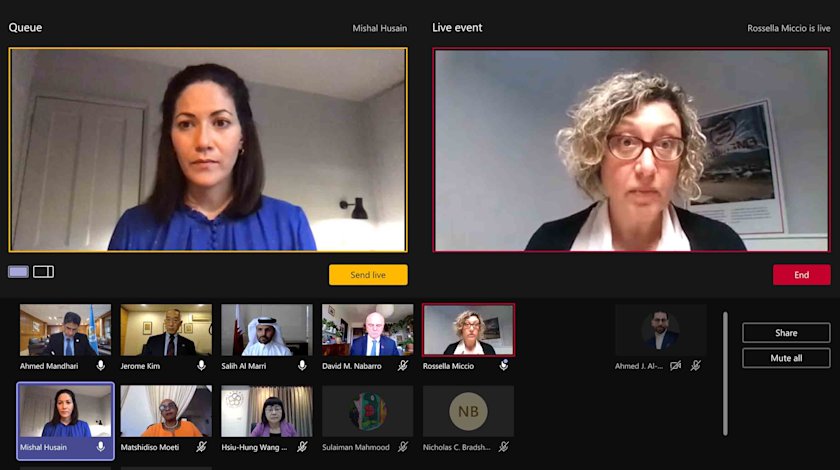
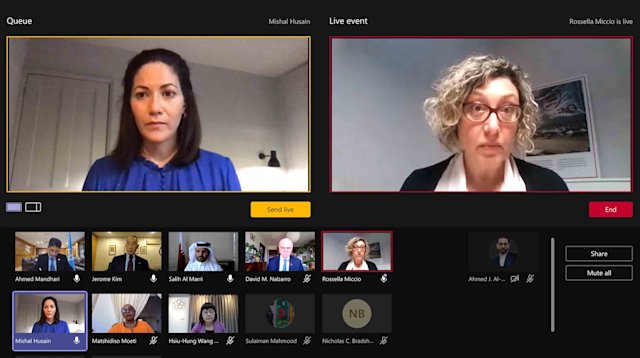
Shaping a resilient future for education
Similarly, in April the World Innovation Summit for Education (WISE) – QF’s global education think-tank – launched the first in a series of virtual conferences under the banner Education Disrupted, Education Reimagined. In partnership with Salzburg Global Seminar, it gathered an international array of education experts to share experiences and insights on how their schools, universities, and organizations responded to the pandemic.
“We are all in the early stage of the COVID-19 crisis, and, amid this situation, we definitely need to think anew,” Stavros N. Yiannouka, CEO of WISE, told the conference. “We must build our futures around resilience, both for our education systems and for the individuals within them.”
Meanwhile, QF production Doha Debates unveiled #DearWorldLive: a weekly show exploring key topics in the context of COVID-19 with leading thinkers, writers, policymakers, and activists, with its opening episodes exploring disability rights amid the pandemic, and its threat to refugees – including on-the-ground insights from aid workers in Cox’s Bazar, home to the world’s largest refugee settlement.
Similarly, in April the World Innovation Summit for Education (WISE) – QF’s global education think-tank – launched the first in a series of virtual conferences under the banner Education Disrupted, Education Reimagined. In partnership with Salzburg Global Seminar, it gathered an international array of education experts to share experiences and insights on how their schools, universities, and organizations responded to the pandemic.
“We are all in the early stage of the COVID-19 crisis, and, amid this situation, we definitely need to think anew,” Stavros N. Yiannouka, CEO of WISE, told the conference. “We must build our futures around resilience, both for our education systems and for the individuals within them.”
Meanwhile, QF production Doha Debates unveiled #DearWorldLive: a weekly show exploring key topics in the context of COVID-19 with leading thinkers, writers, policymakers, and activists, with its opening episodes exploring disability rights amid the pandemic, and its threat to refugees – including on-the-ground insights from aid workers in Cox’s Bazar, home to the world’s largest refugee settlement.
We must build our futures around resilience, both for our education systems and for the individuals within them
Doha Debates; #DearWorldLive series was viewed 19.8m times
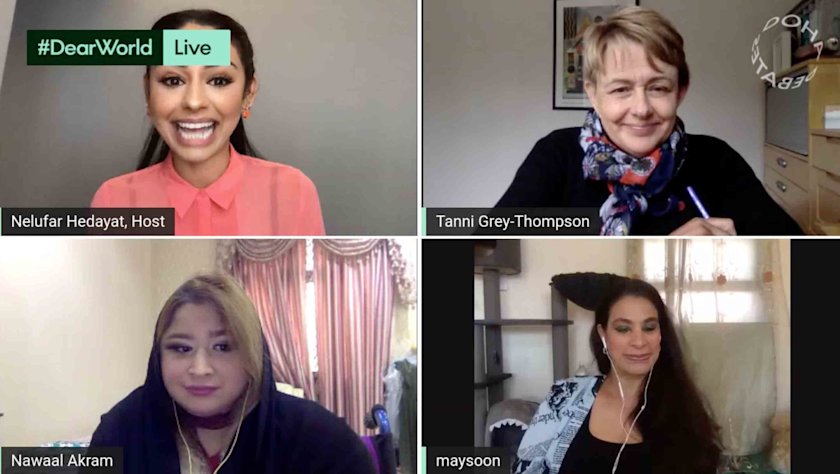
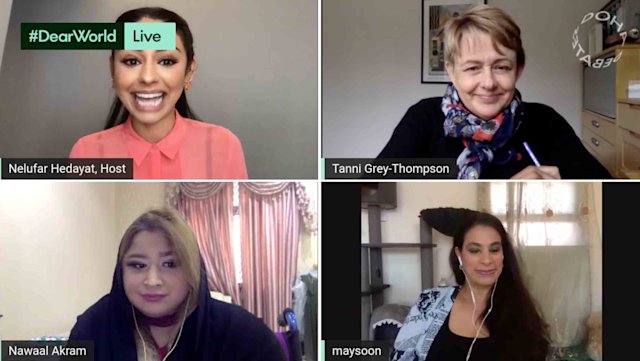
The value of friendship
April was National Autism Awareness Month, and QF contributed by driving home the importance of inclusivity in education – an ethos that shines through its own ecosystem of learning.
Nadi Al Asdeqa, a friendship club formed between students at Renad Academy – a specialized school under QF’s Pre-University Education that helps children with Autism reach their full potential – and fellow QF school Qatar Academy Sidra (QAS) is one example of this ethos.
Spanning the school year, it sees QAS students help their friends from Renad build their life and social skills, while learning about social engagement, communication, diversity, and the responsibility of leadership themselves.
“We stay in the background, let our students be their own leaders, and let Renad students interact, socialize, and enjoy being part of the community,” said Holli Gelina, Equity and Diversity Design Guardian at QAS.
“The program also shows Renad students that being diagnosed with Autism doesn’t mean there are any limits on being an active and valued member of society.”
April was National Autism Awareness Month, and QF contributed by driving home the importance of inclusivity in education – an ethos that shines through its own ecosystem of learning.
Nadi Al Asdeqa, a friendship club formed between students at Renad Academy – a specialized school under QF’s Pre-University Education that helps children with Autism reach their full potential – and fellow QF school Qatar Academy Sidra (QAS) is one example of this ethos.
Spanning the school year, it sees QAS students help their friends from Renad build their life and social skills, while learning about social engagement, communication, diversity, and the responsibility of leadership themselves.
“We stay in the background, let our students be their own leaders, and let Renad students interact, socialize, and enjoy being part of the community,” said Holli Gelina, Equity and Diversity Design Guardian at QAS.
“The program also shows Renad students that being diagnosed with Autism doesn’t mean there are any limits on being an active and valued member of society.”
55 Qatar Academy Sidra students joined the Nadi Al Asdeqa friendship club in 2019-20
In the 2019-20 academic year, Qatar Academy Sidra had:
- 555 students of 30 nationalities
- 68 teachers
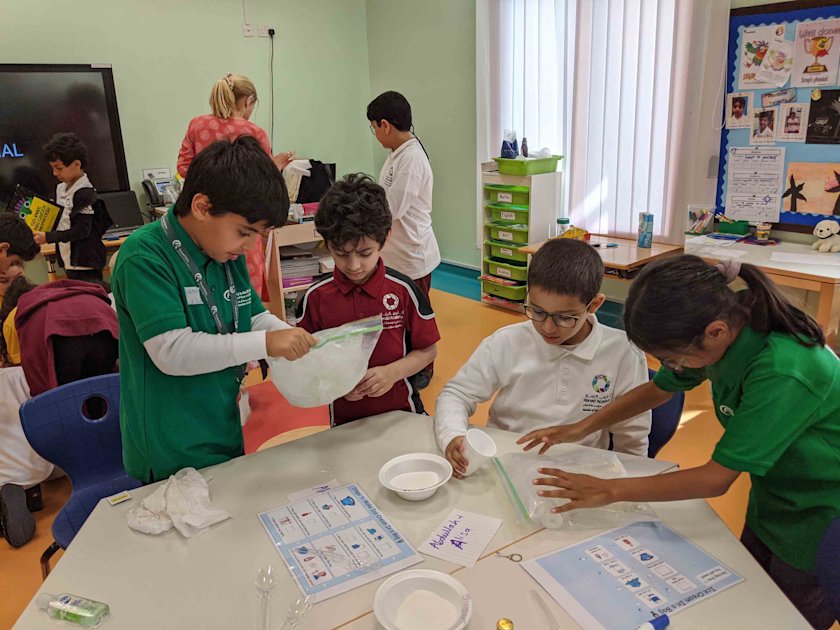
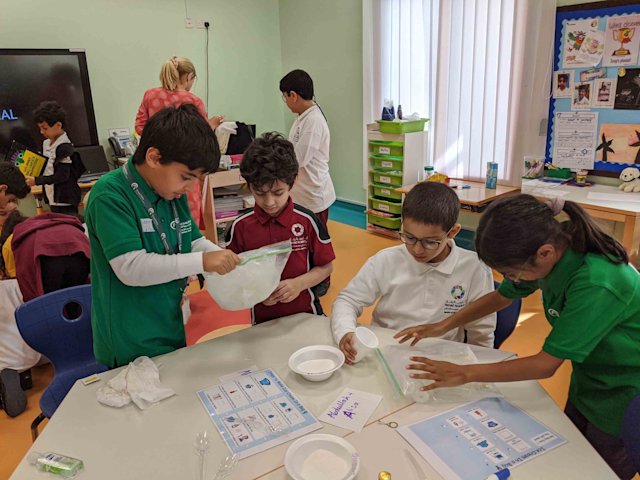
How awareness breaks down barriers
And through a partnership between Renad Academy and the National Autistic Society (NAS), the goal of making Qatar a more Autism-friendly nation is being advanced.
Experts from NAS, the UK’s leading Autism charity, came to Qatar for a second time in 2020 to equip Renad’s team with the skills to train organizations and individuals across the nation to develop their Autism awareness, and reflect this awareness through action and practice.
As Sherri Miller, Director of Renad Academy, explained: “When we talk to businesses in Qatar, they want to learn about Autism, and they want to be accessible to people with Autism – they just need more information about it.
“As a school for children with Autism, we want the community to be fully accessible to our students. The more children with Autism are active in the community, the more Autism will be accepted.”
And through a partnership between Renad Academy and the National Autistic Society (NAS), the goal of making Qatar a more Autism-friendly nation is being advanced.
Experts from NAS, the UK’s leading Autism charity, came to Qatar for a second time in 2020 to equip Renad’s team with the skills to train organizations and individuals across the nation to develop their Autism awareness, and reflect this awareness through action and practice.
As Sherri Miller, Director of Renad Academy, explained: “When we talk to businesses in Qatar, they want to learn about Autism, and they want to be accessible to people with Autism – they just need more information about it.
“As a school for children with Autism, we want the community to be fully accessible to our students. The more children with Autism are active in the community, the more Autism will be accepted.”
The more children with Autism are active in the community, the more Autism will be accepted
Renad Academy:
- Empowers children with Autism
- Engages their families
- Raises community awareness of Autism